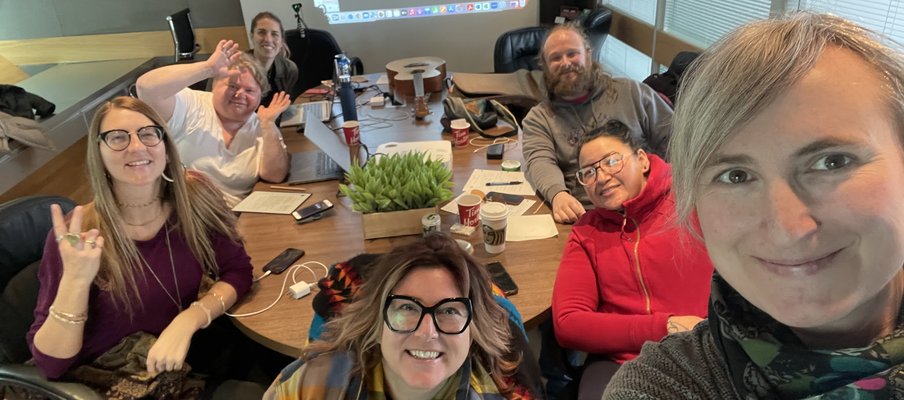
Increasing support for best practices for non-profits: Building a strong foundation for the future
For the past four years, many cultural organizations have taken the opportunity to assess their operations against the Nonprofit LifeCycles model. This past year, SaskCulture linked eight new organizations, large and small, with LifeCycles consultants to help ensure they were able to adapt and move forward successfully.
In 2022, SaskCulture’s Nonprofit Lifecycles Capacity Building Program focused on self-assessment and the strategic planning needed to ensure sustainable long-term programming and services. This kind of strategic planning is often out of reach financially for smaller organizations.
By giving an organization the support to make a strategic plan, the Capacity Building Program "has definitely built CAMP Sask Arts a stronger foundation,” says Eliza Doyle, co-founder, president and executive director, Community Arts Mentorship Program (CAMP) Sask Arts. “This is so helpful for the longevity of the non-profit. Now we know where we're going, and we know the roles and the people that we need to keep the work going. It's been invaluable.”
Doyle, along with other board members, completed a self-assessment at the virtual workshop and hired a Lifecycle Consultant with funding support from the program.
Dennis Garreck, outreach consultant, SaskCulture, says that, "each round of the Nonprofit Lifecycles Capacity Building Program is different, depending on past results and the priorities that come up during the process." This year, the focus was on self-assessment and strategic planning, to respond to the need for long-term planning that is tailored to the specific needs of each non-profit.
“The Lifecycles framework helps you think about the right practice for where an organization is, as opposed to best practices for non-profits in general — because often what is good for a big organization may not be the best fit for a smaller non-profit,” Garreck says. “The full self-assessment helps them to identify things. And then when they get into strategic planning, they can decide which priorities they will work on.”
Doyle says that when she started CAMP Sask Arts in 2020 in response to the need of arts programming in remote and underserved communities, she was unprepared for the nuts and bolts of managing a rapidly growing non-profit. Doyle says that building a strategic plan with a Lifecycles Consultant has helped the group “think about things in terms of longevity, as opposed to just the next thing,” to identify what they need to fulfill their mission to support communities through artist residencies and full-time arts teachers over the long run.
“That's what the non-profit is working towards: we don't do one-offs, and we don't leave a community before local capacity is built.”

